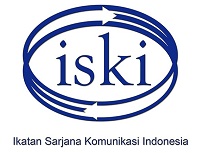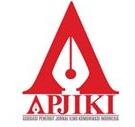Instagram as CSR bridge: Comparing hotel strategies in Indonesia-France
Abstract
Background: This study compares the practice of CSR communication by French hotels operating in Jakarta (Indonesia) and Paris (France). It explores what CSR themes the hotels communicate and which of them lead to consumer engagement in the form of likes, comments, and shares. Purpose: The purpose of this study is to investigate the CSR communication strategies of French hotels operating in Jakarta and Paris and determine the relationship between CSR communication and consumer engagement. Methods: The samples, seven (7) Accor hotels operating in Jakarta and six (6) Accor hotels operating in Paris, were purposively selected. The content analysis method was used, and data were collected from the hotels’ Instagram accounts. The data were then examined using descriptive statistical analysis and multiple regression techniques. Results: The data analysis shows differences in the CSR communication strategy applied by the two sampled hotels. Both French hotels in Jakarta and Paris use Instagram to publish information about their CSR programs, but French hotels in Jakarta publish more CSR posts on Instagram than those in Paris. French hotels in Jakarta focus on environment, society, and economic prosperity, while French hotels in Paris focus on environment, diversity, and society. Customers of French hotels in Jakarta show more engagement, particularly through likes and comments, compared to those in Paris, where engagement is limited to likes. Neither group showed engagement in the form of shares. Implications: Hotels should be more selective in communicating CSR via Instagram, considering the CSR themes that customers care about. It could help improve customer engagement and create a more effective CSR communication strategy.
Keywords
Full Text:
PDFReferences
Abbas, M., Gao, Y., & Shah, S. S. H. (2018). CSR and customer outcomes: The mediating role of customer engagement. Sustainability, 10(11), 4243. https://doi.org/10.3390/su10114243
Abu-Bader, S. H. (2021). Using statistical methods in social science research: With a complete SPSS guide. Oxford University Press. https://books.google.com/s?hl=en&lr=&id=TvYTEAAAQBAJ&oi=fnd&pg=PP1&dq=Data+analysis+utilized+descriptive+statistical+methods+alongside+multiple+regression+analysis,+pg=HMiaHst8K9ReUKVasOmnJHmkMug
Aydin, G. (2020). Social media engagement and organic post effectiveness: A roadmap for increasing the effectiveness of social media use in the hospitality industry. Journal of Hospitality Marketing & Management, 29(1), 1–21. https://doi.org/10.1080/19368623.2019.1588824
Carroll, A. B. (1991). The pyramid of corporate social responsibility: Toward the moral management of organizational stakeholders. Business Horizons, 34(4), 39–48. https://doi.org/10.1016/0007-6813(91)90005-G
Castillo, I., & Villagra, N. (2019). The communication of CSR. Analysis of the hotel sector. Revista Latina de Comunicación Social, 74, 1580–1609. DOI: 10.4185/RLCS-2019-1400en
Chae, M.-J. (2021). Driving consumer engagement through diverse calls to action in corporate social responsibility messages on social media. Sustainability, 13(7), 3812. https://doi.org/10.3390/su13073812
Chomvilailuk, R., & Butcher, K. (2018). The impact of strategic CSR marketing communications on customer engagement. Marketing Intelligence & Planning, 36(7), 764–777. https://doi.org/10.1108/MIP-10-2017-0248
Coombs, T. (2019). Transmedia storytelling: A potentially vital resource for CSR communication. Corporate Communications: An International Journal, 24(2), 351–367. https://doi.org/10.1108/CCIJ-11-2017-0114
De Grosbois, D. (2012). Corporate social responsibility reporting by the global hotel industry: Commitment, initiatives and performance. International Journal of Hospitality Management, 31(3), 896–905. https://doi.org/10.1016/j.ijhm.2011.10.008
Diffley, S., & McCole, P. (2019). The value of social networking sites in hotels. Qualitative Market Research: An International Journal, 22(2), 114–132. https://doi.org/10.1108/QMR-01-2017-0027
Dipa, A. K., Mayasari, M., Khang, N. T., Poedjadi, M. R., & Priyatna, C. C. (2024). Marketing communication in ASEAN: A bibliometric analysis. Jurnal Kajian Komunikasi, 12(2), 285–299. https://doi.org/10.24198/jkk.v12i2.57783
Durão, M., Veríssimo, M., & Moraes, M. (2023). Social Media Research in the Hotel Industry: A Bibliometric Analysis. In J. Marques & R. P. Marques (Eds.), Digital Transformation of the Hotel Industry (153–171). Springer International Publishing. https://doi.org/10.1007/978-3-031-31682-1_8
Farmaki, A. (2019). Corporate social responsibility in hotels: A stakeholder approach. International Journal of Contemporary Hospitality Management, 31(6), 2297–2320. https://doi.org/10.1108/IJCHM-03-2018-0199
Freeman, R. E., Dmytriyev, S. D., & Phillips, R. A. (2021). Stakeholder Theory and the Resource-Based View of the Firm. Journal of Management, 47(7), 1757–1770. https://doi.org/10.1177/0149206321993576
Gupta, R., Shukla, V. K., Rao, S. S., Anwar, S., Sharma, P., & Bathla, R. (2020). Enhancing Privacy through “Smart Contract” using Blockchain-based Dynamic Access Control. 2020 International Conference on Computation, Automation and Knowledge Management (ICCAKM), 338–343. https://doi.org/10.1109/ICCAKM46823.2020.9051521
Kang, E. Y., & Atkinson, L. (2021). Effects of message objectivity and focus on green CSR communication: The strategy development for a hotel’s green CSR message. Journal of Marketing Communications, 27(3), 229–249. https://doi.org/10.1080/13527266.2019.1640270
Kraus, S., Cane, M., & Ribeiro-Soriano, D. (2022). Does doing good do well? An investigation into the relationship between consumer buying behavior and CSR. Economic Research-Ekonomska Istraživanja, 35(1), 584–601. https://doi.org/10.1080/1331677X.2021.1970605
Lodhia, S., Kaur, A., & Stone, G. (2020). The use of social media as a legitimation tool for sustainability reporting: A study of the top 50 Australian Stock Exchange (ASX) listed companies. Meditari Accountancy Research, 28(4), 613–632. https://doi.org/10.1108/MEDAR-09-2019-0566
Lu, Y. (Tracy), Chen, Z. (Wade), & Law, R. (2018). Mapping the progress of social media research in hospitality and tourism management from 2004 to 2014. Journal of Travel & Tourism Marketing, 35(2), 102–118. https://doi.org/10.1080/10548408.2017.1350249
Macca, L. S., Ballerini, J., Santoro, G., & Dabić, M. (2024). Consumer engagement through corporate social responsibility communication on social media: Evidence from Facebook and Instagram Bank Accounts. Journal of Business Research, 172, 114433. https://doi.org/10.1016/j.jbusres.2023.114433
Park, E., Kwon, J., & Kim, S.-B. (2021). Green marketing strategies on online platforms: A mixed approach of experiment design and topic modeling. Sustainability, 13(8), 4494.
Pereira, N. S., & Freitas, A. A. F. (2023). Influence of social media management practices on hotel performance. RAM. Revista de Administração Mackenzie, 24(2), eRAMR230155. https://doi.org/10.1590/1678-6971/eramr230155.en
Riffe, D., Lacy, S., Watson, B. R., & Lovejoy, J. (2023). Analyzing Media Messages: Using Quantitative Content Analysis in Research (5th ed.). Routledge. https://doi.org/10.4324/9781003288428
Rini, I. G. A. I. S., Hasim, M. A., & Datrini, L. K. (2023). Corporate Social Responsibility of Five-Star Hotels in Bali. Jurnal Ilmiah Akuntansi, 7(2), 217–240. https://doi.org/10.23887/jia.v7i2.49640
Serra‐Cantallops, A., Peña Miranda, D. D., & Ramón‐Cardona, J. (2021). Antecedents of CSR communication by hotels: The case of the Colombian Caribbean Region. Business Ethics, the Environment & Responsibility, 30(3), 323–337. https://doi.org/10.1111/beer.12346
Sofyan, D., Abdullah, K. H., Akinci, A. Y., Osiobe, E. U., & Priyatna, C. C. (2022). Map-based communication: A pivotal function of knowledge information in sports. Jurnal Kajian Komunikasi, 10(2), 133. https://doi.org/10.24198/jkk.v10i2.42170
Song, B., & Wen, J. (Taylor). (2020). Online corporate social responsibility communication strategies and stakeholder engagements: A comparison of controversial versus noncontroversial industries. Corporate Social Responsibility and Environmental Management, 27(2), 881–896. https://doi.org/10.1002/csr.1852
Statista. (2025). https://www.statista.com/statistics/578364/countries-with-most-instagram-users/
Troise, C., & Camilleri, M. A. (2021). The use of digital media for marketing, CSR communication and stakeholder engagement. In Strategic corporate communication in the digital age (pp. 161–174). Emerald Publishing Limited. https://www.emerald.com/insight/content/doi/10.1108/978-1-80071-264-520211010/full/html
Türkel, S., & Akan, A. (2015). Corporate Social Responsibility (CSR) Communication: A Turkish Industry Example. In P. J. Kitchen & E. Uzunoğlu (Eds.), Integrated Communications in the Postmodern Era (pp. 151–174). Palgrave Macmillan UK. https://doi.org/10.1057/9781137388551_7
Veloso, M., & Gomez-Suarez, M. (2023). Customer experience in the hotel industry: A systematic literature review and research agenda. International Journal of Contemporary Hospitality Management, 35(8), 3006–3028. https://doi.org/10.1108/IJCHM-04-2022-0517
Wong, E., Leung, R., & Law, R. (2015). How Effective Are Asian Hotels in Communicating CSR Efforts Through the Property Websites? The Case of Hong Kong. In I. Tussyadiah & A. Inversini (Eds.), Information and Communication Technologies in Tourism 2015 (pp. 651–663). Springer International Publishing. https://doi.org/10.1007/978-3-319-14343-9_47
Yang, Y., Yuan, Y., Tan, H., Wang, Y., & Li, G. (2021). The linkages between Chinese children’s both cognitive engagement and emotional engagement and behavioral engagement: Mediating effect of perceptions of classroom interactions in math. Psychology in the Schools, 58(10), 2017–2030. https://doi.org/10.1002/pits.22571
DOI: https://doi.org/10.24198/jkk.v13i1.62550
Refbacks
- There are currently no refbacks.
Copyright (c) 2025 Widiantara I Made

This work is licensed under a Creative Commons Attribution-NonCommercial-ShareAlike 4.0 International License.
Jurnal Kajian Komunikasi Indexed by:
Editorial Office of Jurnal Kajian Komunikasi:
Faculty of Communication Science, Universitas Padjadjaran
Jl. Raya Bandung-Sumedang Km. 21 Jatinangor, Sumedang 45363, Indonesia
WA: +6282316731181 (Chat Only)
Telephone: +62227796954
Faxmile: +62227794122
E-mail: jurnal.kajian.komunikasi@unpad.ac.id
Jurnal Kajian Komunikasi Supervised by:











